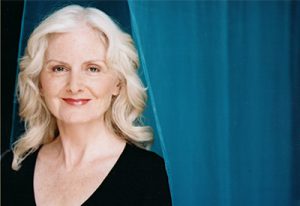
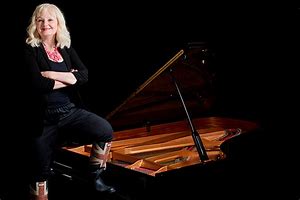
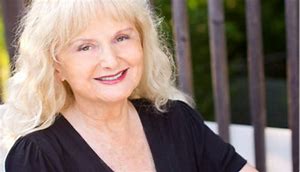
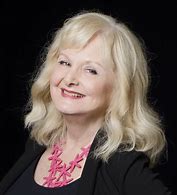
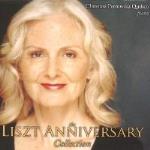
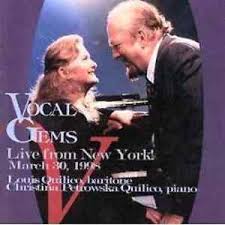
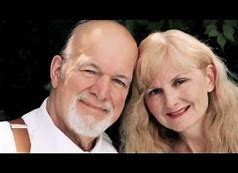
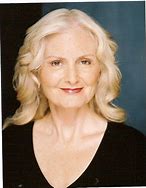
JAMES STRECKER: Please tell us about one or more projects that you have been working on or have recently completed. Why exactly do they matter to you and why should they matter to us.
CHEISTINA QUILICO: I have been performing professionally for 60 years. I began playing with orchestra at 10, made my orchestral debut with orchestra in New York at 14 and so it continued. I am happy to say that I have performed and/or recorded 45 piano concertos already and 50 CDs. This summer I decided to take a break from performing to learn new repertoire. I am scheduled to perform the Tan Dun piano concerto twice next season with the Kindred Spirits Orchestra and record 3 other concertos by Larysa Kuzmenko, Alice Ping Yee Ho and Christos Hatzis with Marc Djokic, violin and Sinfonia Toronto, Nurhan Arman, conductor, as well as record a solo piano CD of works by Alice Ping Yee Ho. I am also a Full Professor of Piano Performance and Musicology at York, so I have been completing teaching, grading and adjudicating online.
JS: How did doing these projects change you as a person and as a creator?
CQ: Learning new repertoire and exploring the evolving work of composers I have worked with before is a mesmerizing and magical journey. I do a lot of art so working with new colours in the different styles of keyboard technique and orchestrations is extremely inspiring for my own art.
JS: What might others not understand or appreciate about the work you produce or do?
CQ: One of my Granddaughters once said to me: “Why do you have to practice? Don’t you know how to play the piano already?” Many people don’t understand the hours we need to spend at the piano to learn the notes, style, dynamics of our repertoire. Even when you have performed the pieces, they still evolve and need work. Keeping repertoire fresh is a difficult job sometimes. Also, as a Professor I need to research, read and prepare lectures and to create interesting classes. Especially now, when courses have to be taught online. It seems to be more work. I was fortunate enough to have several courses ready with PowerPoint presentations.
JS: What are the most important parts of yourself that you put into your work?
CQ: I put my soul, hard work, imagination, dreams and dedication into my music. I don’t want to let the composers down. I always want to do the best technically and musically when I perform, whether it is classical or new music. I also don’t want to let down the audiences who took time to come and hear me perform and spent money on a ticket. You want to give an audience the best experience and emotional journey through the music that you are playing.
JS: What are your biggest challenges as a creative person?
CQ: Finding time for me to enjoy life. Working full-time as a professor and trying to schedule enough time for practice and research is extremely difficult and becoming more so. Leaving special time for my children, grandchildren, family, dogs is crucial and with everyone so busy it is tough. We also need time to let our creative juices come to fruition and finding or scheduling those precious hours is becoming even more difficult. I am so exhausted from all my work that falling asleep on my sofa in front of the TV with my dogs is all I can do sometimes. I want more free time.
JS: Imagine that you are meeting two or three people, living or dead, whom you admire because of their work in your form of artistic expression. What would you say to them and what would they say to you?
CQ: I want to go have a beer or whatever they are drinking with Bach and Mozart. Their music speaks to me and I would like to talk with them about their process of composing. I think that we over analyze today so I have a feeling that they would just ask for another beer and gossip about other musicians and composers. I love Egyptology and ancient history so the third person would be the Pharaoh Akhenaten. I would ask him what spiritual journey took him from worshiping numerous Gods in Egypt to believing in one God Ra. I don’t have any idea what he would say and that is the mystery of the past which fascinates me.
JS: Please describe at least one major turning point in your life that helped to make you who you are as a creative artist.
CQ: I was always creative as a young child, but I loved academics and did well in school and in writing. My piano teacher Boris Berlin suggested I try out for Juilliard. My Father was very much against this because I was 14 and he had hoped I would choose an academic career. He challenged me with a dare. He would consider it if I received a scholarship from Juilliard. I was accepted with a scholarship and so I began my journey as an artist in New York. Before then I found playing very easy and wasn’t sure what I wanted but I fell in love with the energy in New York. Still my favourite place.
JS: What are the hardest things for an outsider to understand about your life as a person in the arts?
CQ: I think that outsiders don’t understand the amount of time you need to spend working on your music and that you are working even when you are not.
JS: Please tell us what you haven’t attempted as yet that you would like to do in the arts? Why the delay so far?
CQ; I have been fortunate to have experimented with a lot of different genres and musical groups in my life. I performed all the virtuoso romantic music, concertos with orchestra, accompanied my late husband, Metropolitan Opera Star, Louis Quilico, in recitals of songs and arias. I have done a lot of experimental music with my first husband, Michel-Geroges Brégent, Québec composer. I worked with Pierre Boulez, Karlheinz Stockhuasen, György Ligeti, John Cage. These were the greats at the time I was a young artist. I have played jazz, premiered numerous compositions in all different styles. I have worked with electronics, played harpsichord. I think doing more online is something I need to think about.
JS: If you could re-live your life in the arts, how would you change it and why?
CQ: If I could re-live my life I would definitely not be in the arts. I would love to be an Egyptologist. I took courses for over 6 years and toyed with the idea of getting another degree. I have been to Egypt and love exploring. The other choice would have been an astrophysicist if I had been slightly better in math. I was very good in science and I love anything to do with discoveries in space.
JS: Let’s talk about the state of the arts in today’s society, including the forms in which you work. What specifically gives you hope and what specifically do you find depressing?
CQ: At the moment we are in a crisis. The Universities are definitely going to be teaching as many courses as they can online. Solo instruments, like piano lessons can be taught online. I just adjudicated over 100 videos for a music competition online. The problem is that it isn’t a level playing field. Each piano is slightly different and some better than others, which makes fair adjudication difficult. However, chamber music at the moment will be difficult to teach safely. I think we have to wait out the pandemic and hope that artists survive financially.
JS: What exactly do you like about the work you create and/or do?
CQ: I love creating paintings or drawings inspired by the music I play. I had written much poetry when I was younger and one of my biggest thrills lately was that David Jaeger, composer and producer extraordinaire used some of my poetry for his compositions. I also love the fact that I have had the opportunity to work on Baroque, Classic, Romantic and Contemporary Music. Working on different styles keeps my performance fresh and hopefully interesting.
JS: In your creative life thus far, what have been the most helpful comments you have heard about your work?
CQ: I have been extremely lucky in my life to have had a lot of reviews. This is sadly not the case for young artists today. I remember as a young Juilliard pianist to be thrilled to have had so many excellent New York Times reviews by critics who were knowledgeable about the repertoire and the piano world. For me it was the affirmation by these New York Times reviews, and those from Paris, France and the rest of US, Canada, etc. that kept me in the profession. Also, one of my teachers said after I received an especially “rave” review from the New York Times: Don’t be too confident. The next time they could say, “Didn’t live up to potential.” I always remembered that and tried to better my previous performances.
JS: Finally, what do you yourself find to be the most intriguing and/or surprising things about you?
CQ: My close friends and family know that I am a big animal lover. I love going to Farm Sanctuaries and bonding with cows, goats, horses and other animals. My daughters and I have 13 pets (6 dogs,5 cats and 2 guinea pigs). I also have a backyard sanctuary for squirrels and birds. The squirrels sit by the window and knock on the door for food when I am practicing. It brings me close to nature. That, and my passion for ancient history, especially Egyptology is something not everyone knows about me. Although my 2 dogs, a Pug and a Yorkie are often featured on my Facebook page, more than my concerts.
